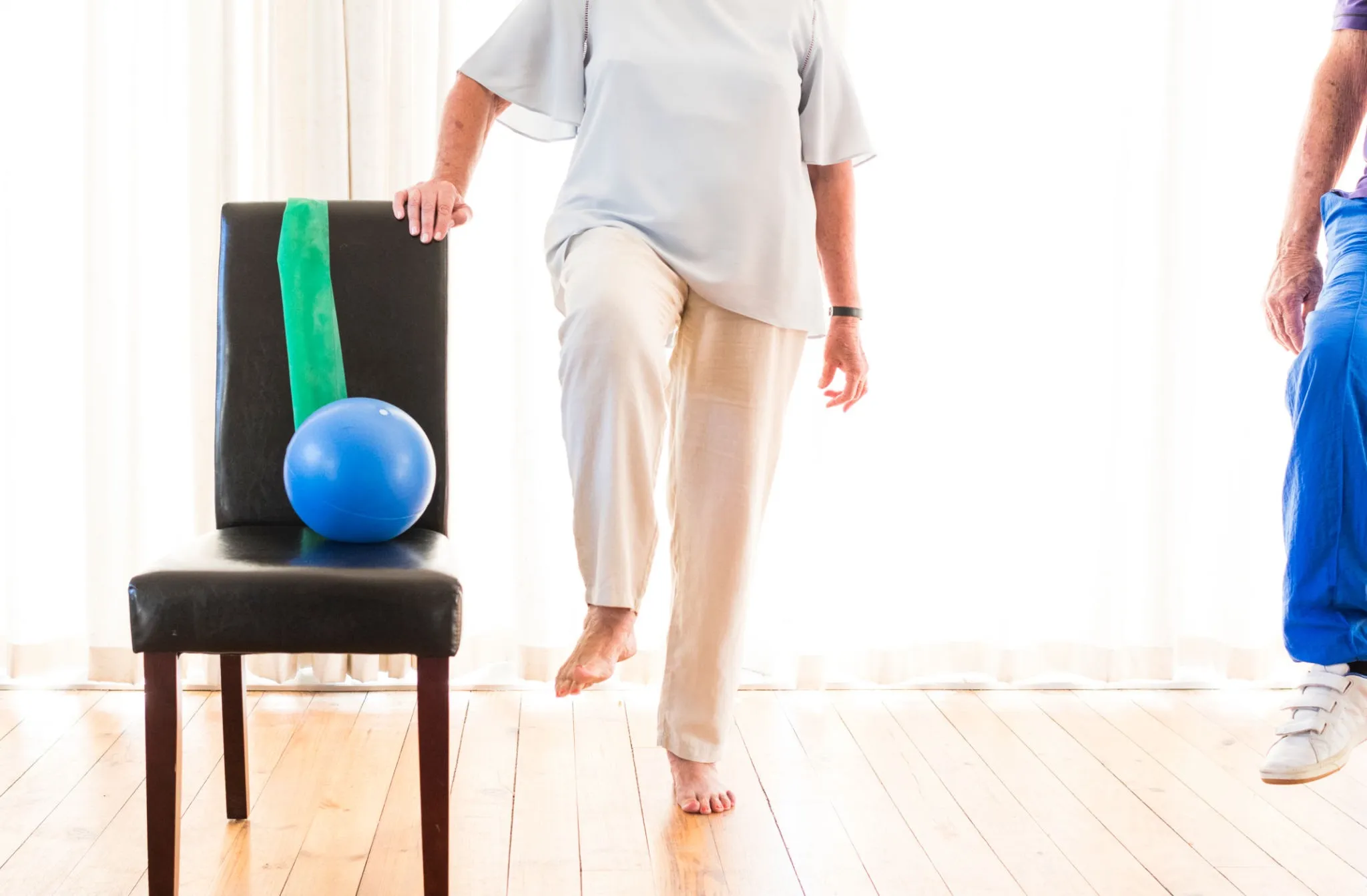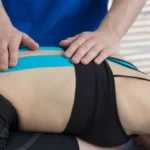Neurological Aged Care Physiotherapy: Expert In-Home Support for Seniors

Neurological aged care physiotherapy brings specialized movement therapy directly to seniors living with conditions like Parkinson’s disease, stroke recovery, dementia, and multiple sclerosis. Instead of struggling to get to appointments, older adults receive expert care in the comfort and safety of their own homes.
For families watching their loved ones navigate neurological conditions, finding the right support can feel overwhelming. The good news? Mobile physiotherapy has transformed how seniors access the specialized care they need.
Table of Contents
ToggleUnderstanding Neurological Conditions in Aged Care
Neurological conditions affect the brain, spinal cord, and nerves throughout the body. As we age, these conditions become more common and can significantly impact daily life.
Common Neurological Conditions in Seniors
The most frequently seen neurological issues in aged care include:
- Stroke and post-stroke recovery: Affecting movement, balance, and coordination on one or both sides of the body
- Parkinson’s disease: Causing tremors, rigidity, slow movement, and balance problems
- Dementia and Alzheimer’s disease: Leading to cognitive decline alongside physical deterioration
- Multiple sclerosis: Creating unpredictable symptoms affecting strength and mobility
- Peripheral neuropathy: Resulting in numbness, weakness, and pain in hands and feet
Each condition presents unique challenges. That’s why specialized neurological physiotherapy focuses on individual needs rather than one-size-fits-all approaches.
Why Traditional Clinic Visits Can Be Challenging
Getting to a clinic becomes increasingly difficult for seniors with neurological conditions. Transport issues, fatigue, mobility limitations, and anxiety about unfamiliar environments create genuine barriers to care.
Many older adults simply stop attending appointments because the journey feels too hard. This leads to declining function and increased risk of falls, which is exactly what physiotherapy aims to prevent.
How Neurological Aged Care Physiotherapy Works

Mobile physiotherapy eliminates these obstacles by bringing qualified therapists to the client’s doorstep. This isn’t just convenient; it’s clinically superior in many ways.
The In-Home Assessment Advantage
When a physiotherapist visits your home, they see exactly where challenges occur. They observe:
- How you navigate from bedroom to bathroom
- Whether your furniture placement supports safe movement
- If lighting, floor surfaces, or layout create fall risks
- What daily activities you’re struggling with most
This real-world context allows for personalized recommendations that actually work in your environment. Learn more about at-home physiotherapy benefits.
Personalized Treatment Plans for Neurological Conditions
Every neurological condition affects people differently. A stroke survivor might need intensive arm strengthening, while someone with Parkinson’s might focus on gait training and balance.
Your physiotherapist develops a customized program addressing:
- Immediate safety concerns: Fall prevention and home modifications
- Functional goals: Walking to the mailbox, getting dressed independently, cooking safely
- Progressive strengthening: Building muscle to support neurological recovery
- Balance and coordination: Reducing fall risk through targeted exercises
- Pain management: Addressing discomfort that limits movement
For those recovering from stroke, specific stroke rehabilitation exercises can make a remarkable difference in regaining independence.

The Benefits of Choosing Mobile Neurological Physiotherapy
Bringing physiotherapy home offers advantages that go far beyond convenience. Let’s break down why this approach works so well for seniors with neurological conditions.
Comfort and Familiarity Reduce Anxiety
Many seniors with neurological conditions experience anxiety, especially in unfamiliar settings. Home therapy sessions happen in a comfortable, controlled environment where they feel safe.
This emotional comfort translates to better engagement with exercises and more effective therapy overall.
Family Involvement and Education
When physiotherapy happens at home, family members and carers can participate. They learn proper techniques for assisting with transfers, exercises, and daily activities.
This education empowers families to support recovery between sessions, maximizing therapy benefits.
Real-World Functional Training
Practicing movements in the actual environment where you need them creates better outcomes. If getting in and out of your shower is difficult, your physiotherapist works with you there, not in a generic clinic bathroom.
This functional approach to residential aged care physiotherapy means faster progress toward meaningful goals.
Consistency and Accessibility
Regular therapy sessions are crucial for neurological recovery. When appointments happen at home, there’s no transport stress, weather concerns, or energy depletion from traveling.
Clients attend more consistently, leading to better results.
| Factor | In-Home Physiotherapy | Clinic-Based Physiotherapy |
|---|---|---|
| Travel Required | None – therapist comes to you | Yes – can be exhausting and risky |
| Environment | Your own home, comfortable and familiar | Unfamiliar clinical setting |
| Functional Training | Exercises in your actual living space | Generic equipment and spaces |
| Family Involvement | Easy for family to participate and learn | Limited family presence |
| Appointment Consistency | Higher attendance rates | Often missed due to transport issues |
| Fall Risk Assessment | Assessed in your actual home environment | Cannot assess home-specific risks |
| Personalization | Highly personalized to your space and routines | Standardized approaches |
Who Benefits Most from Neurological Aged Care Physiotherapy?
While mobile physiotherapy helps many people, certain groups see particularly outstanding results.
Seniors Living Independently at Home
Older adults who want to maintain independence while managing neurological conditions benefit enormously. Physiotherapy helps them continue living safely at home rather than transitioning to residential care prematurely.
Understanding how to prevent falls in elderly individuals is a key component of this independence.
Residents in Aged Care Facilities
Many residential facilities don’t have on-site neurological specialists. Mobile physiotherapists bring expertise directly to residents, complementing facility care.
This specialized support makes a significant difference in maintaining mobility and quality of life.
NDIS Participants with Neurological Disabilities
Younger people with neurological conditions like cerebral palsy, acquired brain injuries, or MS often have NDIS funding for physiotherapy. Mobile services align perfectly with NDIS goals of independence and community participation.
Learn how NDIS physiotherapy services support your health journey.
Post-Hospital Discharge Patients
After hospitalization for stroke or neurological events, continuing therapy at home bridges the gap between hospital care and full recovery. This continuity prevents regression and accelerates improvement.
For those needing CTP physiotherapy following motor accidents, mobile services ensure consistent care during recovery.
What to Expect from Your First Session
Starting physiotherapy shouldn’t feel overwhelming. Here’s what typically happens during an initial neurological assessment at home.
Comprehensive Assessment
Your physiotherapist spends time understanding your complete health picture, including:
- Medical history and current medications
- Previous injuries or surgeries
- Current symptoms and challenges
- Daily routines and activities
- Personal goals and priorities
Physical Evaluation
They’ll assess your current abilities, checking strength, balance, coordination, range of motion, and how you perform daily tasks. This isn’t about passing or failing; it’s about establishing a baseline.
Home Safety Review
Your therapist identifies potential fall hazards and suggests practical modifications. Sometimes simple changes like removing loose rugs or adding grab bars make a huge difference.
Goal Setting Together
What matters most to you? Walking to the local shops? Playing with grandchildren? Cooking meals independently? Your goals drive the treatment plan.
Curious about investment? Check out how much it costs to see a physiotherapist in Australia.
Evidence-Based Techniques Used in Neurological Physiotherapy
Modern neurological physiotherapy draws on proven techniques that harness the brain’s remarkable ability to adapt and recover.
Neuroplasticity-Based Therapy
The brain can form new neural pathways through repeated, purposeful movement. Therapists use specific exercises that encourage this rewiring process, particularly important after stroke.
Constraint-Induced Movement Therapy
For stroke survivors, this technique involves encouraging use of the affected limb by gently limiting the unaffected side. It sounds counterintuitive but proves highly effective.
Gait and Balance Training
Walking pattern retraining and balance exercises reduce fall risk while improving confidence and mobility. These form the foundation of most neurological rehab programs.
Strength and Conditioning
Building muscle strength supports neurological function and compensates for areas of weakness. Even small strength gains can dramatically improve daily function.
Task-Specific Training
Rather than generic exercises, task-specific training focuses on movements you actually need. If buttoning shirts is difficult, you practice that exact motion repeatedly.
“When my father had his stroke, we thought his active days were over. But with regular home physiotherapy sessions, he’s back to doing his woodworking and walking to the corner shop. The therapist didn’t just give him exercises; she worked with him on the actual movements he cared about. It’s given him back his independence and his confidence.” – Margaret T., daughter of stroke recovery client
Supporting Services That Complement Neurological Physiotherapy
While physiotherapy addresses physical function, combining it with other services creates comprehensive support.
Occupational Therapy
Occupational therapists focus on daily living skills like dressing, cooking, and personal care. Together with physiotherapy, this covers both movement and practical independence.
Speech Pathology
Many neurological conditions affect swallowing and communication. Speech pathologists work alongside physiotherapists to address these concerns.
Lymphatic Massage
For those experiencing swelling related to reduced mobility, lymphatic massage therapy can provide significant relief and improve circulation.
Hydrotherapy
Water-based exercise offers low-impact movement opportunities. Some providers offer hydrotherapy sessions alongside land-based therapy.
The Journey of Neurological Recovery
with In-Home Physiotherapy
Initial Contact
& Referral
GP referral and initial phone consultation
No Travel StressComprehensive
Home Assessment
Therapist assesses mobility, environment & identifies goals
Family InvolvementPersonalized
Treatment Plan
Custom program for your condition and personal objectives
Real-World PracticeRegular Therapy
Sessions
Consistent sessions building strength, balance & confidence
Flexible SchedulingProgress
Monitoring
Ongoing assessment and plan adjustments for optimal results
Expert SupportAchieved
Independence
Improved mobility, reduced fall risk & home independence
Key Benefits Throughout Your Journey
No exhausting travel to appointments
Exercises practiced in real-world settings
Therapy in your comfortable, familiar environment
Consistent attendance leads to better outcomes
Family can participate and learn proper techniques
Home safety assessed and improved
Your journey is unique — timeline varies based on condition, goals, and individual progress
Funding Options for Neurological Aged Care Physiotherapy
Quality physiotherapy shouldn’t be out of reach financially. Several funding pathways make it accessible for Australian seniors.
Home Care Packages
Many seniors with government Home Care Packages can allocate funds toward physiotherapy. This flexible funding supports your choice of providers.
NDIS Funding
For those under 65 with neurological disabilities, NDIS often covers physiotherapy as part of capacity building supports. Recent NDIS funding changes in 2025 mean it’s important to understand your entitlements.
DVA Coverage
Veterans with accepted conditions can access DVA physiotherapy services with approved referrals.
Private Health Insurance
Most private health extras cover physiotherapy with appropriate rebates. Check your specific policy for limits and requirements.
Medicare and Private Payment
Chronic Disease Management Plans through your GP can provide Medicare rebates for up to five physiotherapy sessions annually. Private payment options exist for those without other funding.
Choosing the Right Mobile Physiotherapy Provider
Not all mobile physiotherapy services offer equal quality or specialization. Here’s what to look for.
Neurological Specialization
Confirm that therapists have specific training and experience in neurological conditions. General physiotherapy skills don’t automatically translate to complex neurological care.
Comprehensive Service Areas
Ensure the provider covers your location. Quality services operate across major metropolitan areas, offering mobile physiotherapy in Sydney, Brisbane, and the Gold Coast.
Flexible Scheduling
Your condition doesn’t follow a 9-to-5 schedule. Look for providers offering flexible appointment times that suit your energy levels and routines.
NDIS Registration
If using NDIS funding, confirm the provider is registered. This ensures quality standards and proper claiming processes.
Team Expertise
A diverse team brings varied experience. Some providers showcase their qualified physiotherapy team members so you can learn about their backgrounds.
Positive Client Outcomes
Look for testimonials and case studies demonstrating real results with neurological clients. Success stories reveal what’s truly possible.
Common Concerns About Starting Physiotherapy
Many seniors hesitate to begin physiotherapy for understandable reasons. Let’s address the most common worries.
“Will It Hurt?”
Physiotherapy should never cause significant pain. You might feel muscle fatigue or mild discomfort as you build strength, but therapists work within your comfort level. Communication is key; always speak up if something hurts.
“I’m Too Old to Improve”
This is simply not true. Research consistently shows that people in their 70s, 80s, and 90s can make meaningful gains in strength, balance, and function with appropriate therapy. Age is not a barrier to improvement.
“My Condition is Too Advanced”
Even with progressive conditions like Parkinson’s or advanced dementia, physiotherapy helps maintain current function, manage symptoms, and improve quality of life. It’s never too late to benefit.
“I Don’t Have Space at Home”
Most exercises require minimal space. Physiotherapists are experts at adapting to any home environment, using furniture and everyday items creatively.
Regional Availability: Where You Can Access This Care
Mobile neurological physiotherapy is expanding across Australia, making specialized care accessible in more communities.
Sydney Metro
Comprehensive coverage across Sydney, from Parramatta to coastal suburbs like Bondi and Coogee. Northern suburbs including Chatswood and Mosman also have excellent access.
Brisbane
Services extend throughout Brisbane metro, from the CBD to surrounding areas like Indooroopilly, Carindale, and Chermside.
Gold Coast
Coverage spans the Gold Coast region, including Surfers Paradise, Main Beach, and southern suburbs.
Find a mobile physio near you to check if your area is covered.
Taking the First Step Toward Better Mobility
Starting neurological aged care physiotherapy is simpler than many people expect. Here’s how to get the ball rolling.
- Get a referral: While not always required, a GP referral helps clarify your needs and may unlock funding options
- Contact a provider: Reach out to discuss your situation and schedule an initial assessment
- Prepare for the first visit: Have relevant medical information and a list of your concerns and goals ready
- Commit to the process: Consistency brings results; regular sessions combined with home exercises create meaningful change
Don’t let mobility challenges diminish quality of life. Professional support can make a genuine difference in maintaining independence, reducing fall risk, and staying active in your own home.
Ready to explore how mobile physiotherapy can support you or a loved one? Visit healthnextdoor.com.au to learn more about neurological physiotherapy services across Sydney, Brisbane, and the Gold Coast.
About Health Next Door
With teams across Sydney, Brisbane, and the Gold Coast, this mobile physiotherapy service specializes in bringing expert neurological care to seniors in their own homes. Their experienced physiotherapists understand the unique challenges of aging with neurological conditions and create personalized programs that support independence and quality of life.
Whether you’re managing Parkinson’s disease, recovering from stroke, or navigating the complexities of dementia care, specialized physiotherapy can help you maintain mobility, prevent falls, and stay active in your community.
Contact them today to schedule your initial assessment and take the first step toward better mobility and independence. Visit their contact page or explore their physiotherapy blog for more helpful resources.

You Can Find All Answers Here
Look for a physiotherapist registered with AHPRA (Australian Health Practitioner Regulation Agency) who has completed additional postgraduate training or extensive clinical experience in neurological conditions.
Many specialize through professional development courses focusing on stroke rehabilitation, Parkinson's management, or neurological assessment techniques. Don't hesitate to ask about their specific experience with your condition during your initial consultation.
Session frequency depends on your condition, goals, and current function. Initially, many people benefit from two to three sessions per week to build momentum and establish routines.
As you progress, this might reduce to weekly or fortnightly maintenance sessions. Your physiotherapist will adjust the schedule based on your response to treatment and changing needs. Consistency matters more than intensity in many cases.
Yes, in most cases. Home Care Packages typically include physiotherapy as an approved service within your care budget. NDIS participants with capacity building or core supports budget can usually access physiotherapy, especially when it directly relates to achieving plan goals.
Always check with your plan manager or support coordinator to confirm coverage and understand any claiming requirements. Recent support coordinator guidance can help maximize these outcomes.
Absolutely. While physiotherapy won't cure progressive neurological conditions, research consistently shows it helps manage symptoms, maintain function longer, and improve quality of life. For Parkinson's, targeted exercises can reduce tremors, improve gait, and decrease fall risk. With dementia, maintaining physical activity supports cognitive function and mood while preventing complications from inactivity.
The key is starting early and continuing consistently, even as conditions progress.
Not all physiotherapy is equal, particularly for complex neurological conditions. If previous therapy didn't help, consider whether the therapist had specific neurological expertise, whether the program was truly personalized to your needs, and if it occurred frequently enough for genuine progress.
Mobile physiotherapy in your home environment often produces better results than clinic-based care because exercises are more functional and relevant. Additionally, a fresh perspective from a different therapist can identify opportunities previous treatment missed.
It's worth giving specialized neurological physiotherapy another try, especially if your previous experience was generic.
Get Physio Care at Home – No Waiting, Just Relief!
We bring expert physiotherapy directly to your door, with no hassle or long wait times. Our skilled, NDIS-approved physiotherapists are here to help you feel better, faster.
Health Next Door, we bring mobile physiotherapy to your doorstep, ensuring a patient-centric approach that prioritizes your needs and goals. Our experienced physiotherapists assess your condition and create a personalized therapy plan, helping you recover in the comfort of your home with expert care tailored just for you. With our comprehensive mobile physiotherapy services, you get professional treatment for pain relief, injury recovery, and mobility improvement—all without leaving your home. Experience convenient, high-quality care designed to fit your lifestyle.
View All Articles
